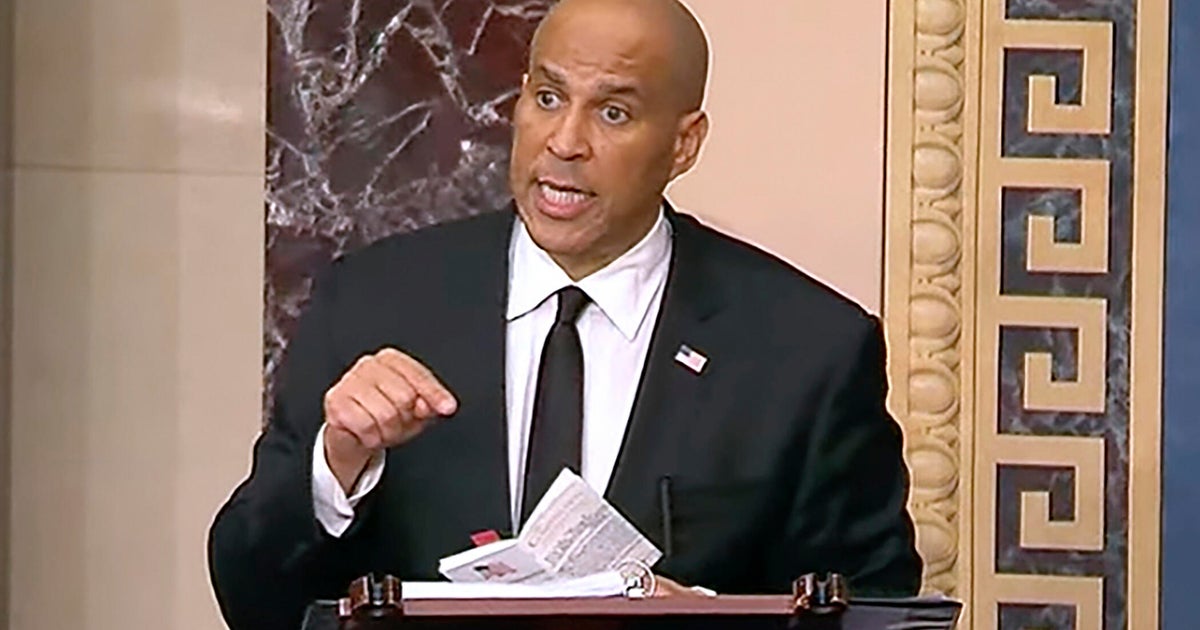The Constitution’s authors clearly saw Congress as being the first among equals in the three branches of government. The legislative branch was granted sole authority over some of the most powerful aspects of the state, including taxation and declarations of war. It was left to the first Congress to finish filling out most of the document’s details, like determining the size of the Supreme Court and the scope of the executive departments under the president.
The Republican leaders of the 119th Congress seem to have entirely forgotten their place in the federal pecking order. There are few GOP legislators these days who are willing to present themselves as an equal of President Donald Trump, let alone willing to tell him what to do. Their prostration before Trump has reduced the most powerful branch on paper to petitioning the president’s court for the means to achieve even Congress’ most modest goals.
The Republican leaders of the 119th Congress seem to have entirely forgotten their place in the federal pecking order.
Trump, in his race to rip out the gears of government and illegally tear down what Congress has established, has made no secret of this new power dynamic. Congressional Republicans have offered little public outcry against the president usurping their power, slashing whole agencies and departments their predecessors established under federal law. Not only that, but the legislature’s new deference to the White House is compelled to take a bizarre detour through billionaire Elon Musk, who in his role as the de facto head of the quasi-governmental Department of Government Efficiency appears to have more control over the Republican agenda than House Speaker Mike Johnson, R-La.
Behind closed doors, Republicans are desperate to keep Trump and Musk’s cuts from hurting them with their constituents — or at least to get some kind of heads-up from DOGE’s hatchet men. The New York Times on Friday reported a behind-the-scenes look at how Rep. Tom Cole, R-Okla., leapt to protect federal offices that serve his constituents and provide jobs in his district. Rather than using any of his influence as chair of the House Appropriations Committee, Cole and his aides had to reach out to Musk and DOGE, hat in hand, to ask them to reconsider.
Alongside his counterpart in the Senate and the head of the House Ways and Means Committee, Cole is a key gatekeeper of the power of the purse. In the past, he would have been rightly seen as one of the most powerful figures in Washington. The power the speaker and majority leader wield over those committees has been used in turn to boost their own influence. Members hustled hard for earmarked funds to bring federal projects to their states and districts, which the president’s administration would then carry out. It has historically been a tangible way for lawmakers to show that they were getting things done in Washington.
Now things are entirely reversed, as the White House asserts total control over federal projects, leaving personal appeals to Musk and his loyal staffers as the only way for Republicans to stave off politically damaging cuts. While the earlier system was undoubtedly partisan, there was always a chance the next election would put the gavel back in the hands of the current ranking member.
But Democrats now find themselves iced out of the decision-making process entirely, as The Boston Globe reported earlier this month:
Representative Jake Auchincloss, a [Massachusetts] Democrat, said that he tried to get in touch with DOGE about a particular concern — he wouldn’t elaborate on the inquiry or explain how he conveyed it — but that ‘DOGE had every opportunity to engage with me in good faith and stiff-armed me.’
That seems to suit the GOP’s congressional leadership just fine. If the only purpose of this Republican Congress is to follow the president’s instructions (however capricious or arbitrary), then there’s no need for Democratic input. Speaker Johnson is obeying Trump’s directive to deal simultaneously with an annual spending bill and reupping the 2017 tax cuts, despite the risk that figuring out all the details may be too much for his fragile caucus to bear. Meanwhile, Senate Majority Leader John Thune, R-S.D., is busy trying to figure out how to make the 2017 tax cuts permanent like Trump wants without driving up the national debt by several trillion dollars over the next decade.
The urge to please Trump has Congress scrambling to carry out his whims, bending over backward to do so without relying on a single Democratic vote.
The urge to please Trump has Congress scrambling to carry out his whims, bending over backward to do so without relying on a single Democratic vote. Thune spent last week preparing to lobby the Senate parliamentarian to let those costly tax cuts dodge the 60-vote threshold for its budget bill. If he fails, he’ll either need to convince his caucus to overrule her or find enough Democrats to break a filibuster. Meanwhile, Johnson was left to figure out what to do with Rep. Elise Stefanik of New York, the former No. 4 member of his leadership team. She stepped down from that role, but her nomination to be U.N. ambassador has been pulled to protect the GOP’s exceedingly slim House majority. Anything to avoid engaging with Democrats and confronting the idea Congress should be more than a rubber stamp for the president.
Under the weight of Trump’s gravitational pull, the milelong stretch of Pennsylvania Avenue that separates the Capitol from the White House has compressed into a singularity. When facing voters next fall, congressional Republicans are hoping to do so lauding not their own victories but those of the president and the richest man in the world. It should be embarrassing for a member of the U.S. Congress to campaign on their proximity to power — but that seems to be good enough in the shameless vacuum of ambition that is laying ruin to the Founders’ temple to democracy.

















